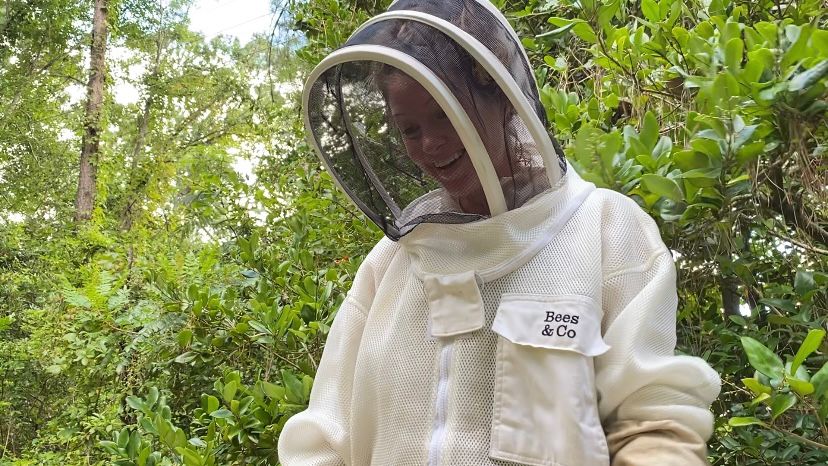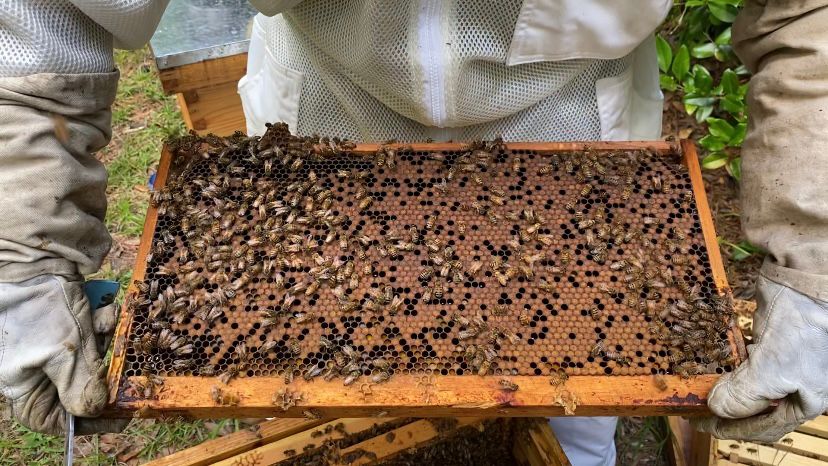Bees are a vital part of our environment and biodiversity. Without them, we wouldn’t have many of the essential foods and tools we need for survival.
For the past few years, bee populations have been declining. Thanks to movements to save the bees, some of those populations are now steady — but that doesn’t mean those bees don’t still face threats.
Jessy O’Keefe has been a beekeeper for 10 years. Although it’s work that keeps her as busy as a bee, she said it’s also something that makes her feel at ease.

“The other day, there was a situation that had me feeling super stressed, and I immediately just felt this urge to go get in the hive,” said O’Keefe. “I think it’s really good for anxiety, it’s really calming, it brings you into the present moment like no other.”
Now, she’s sharing that feeling with others. She started Seaside Honeybees, a business that allows others to enjoy hives right in their own backyard.
“This is an easy way to go about doing it, cause we do the installation and then we also do the management,” O’Keefe said. “So we come, and we take care of the bees and give them anything that they need.”
Unfortunately, she and her clients lost a couple of hives this year.

“So we lost two of our hives from private pesticide companies,” O’Keefe said. “I saw firsthand this year that this is an actual threat, it’s not just something people talk about.”
And what’s bad for bees can be harmful to other pollinators as well.
“They’re like a pulse on the status of all of the natural pollinators in the area,” O’Keefe said. “If a honeybee is struggling, you know that other pollinators are struggling too.”
Some bee populations are no longer declining at the rate they were a few years ago, but it’s still important to take steps to keep it that way. That's especially true in Wilmington, which has been one of the U.S. Certified Bee Cities since 2015.
That means it’s supposed to maintain a safe, sustainable environment for bees. That’s why O’Keefe says seeking out natural alternatives to pesticides is so important.
“I think it’s really important to go that route when you can,” said O’Keefe, “especially knowing that the county’s spraying already for mosquitoes.”
O’Keefe said if the bees die, not only would we be unable to get some of the vital nutrients we need, but it would be heartbreaking as well.
“It’s just really sad because the colony is a life,” said O’Keefe.

O’Keefe has 50 hives throughout New Hanover County. She said it was private pest control companies’ spray that killed the hives, not the county’s vector control team. The county considers bees when spraying for mosquitoes by only spraying at night when hives aren’t active and using a special kind of spray that stays in the air like a cloud and dissipates.
O’Keefe urged people to make use of this county resource or use their own alternative pesticides like garlic and essential oils.



